4-(3-phenylpropyl)pyridine

4-(3-phenylpropyl)pyridine structure
|
Common Name | 4-(3-phenylpropyl)pyridine | ||
|---|---|---|---|---|
| CAS Number | 2057-49-0 | Molecular Weight | 197.27600 | |
| Density | 1.03 g/mL at 25 °C(lit.) | Boiling Point | 322 °C(lit.) | |
| Molecular Formula | C14H15N | Melting Point | N/A | |
| MSDS | Chinese USA | Flash Point | >230 °F | |
| Symbol |

GHS07 |
Signal Word | Warning | |
| Name | 4-(3-Phenylpropyl)pyridine |
|---|---|
| Synonym | More Synonyms |
| Density | 1.03 g/mL at 25 °C(lit.) |
|---|---|
| Boiling Point | 322 °C(lit.) |
| Molecular Formula | C14H15N |
| Molecular Weight | 197.27600 |
| Flash Point | >230 °F |
| Exact Mass | 197.12000 |
| PSA | 12.89000 |
| LogP | 3.25690 |
| Vapour Pressure | 0.000541mmHg at 25°C |
| Index of Refraction | n20/D 1.563(lit.) |
| InChIKey | AQIIVEISJBBUCR-UHFFFAOYSA-N |
| SMILES | c1ccc(CCCc2ccncc2)cc1 |
| Stability | Stable. Combustible. Incompatible with strong oxidizing agents. |
| Symbol |

GHS07 |
|---|---|
| Signal Word | Warning |
| Hazard Statements | H315-H319-H335 |
| Precautionary Statements | P261-P305 + P351 + P338 |
| Personal Protective Equipment | Eyeshields;full-face respirator (US);Gloves;multi-purpose combination respirator cartridge (US);type ABEK (EN14387) respirator filter |
| Hazard Codes | Xi:Irritant; |
| Risk Phrases | R36/37/38 |
| Safety Phrases | S26-S36 |
| RIDADR | 2810 |
| WGK Germany | 3 |
| Packaging Group | III |
| Hazard Class | 6.1(b) |
| HS Code | 2933399090 |
|
~% 
4-(3-phenylprop... CAS#:2057-49-0 |
| Literature: US6303593 B1, ; US 6303593 B1 |
|
~85% 
4-(3-phenylprop... CAS#:2057-49-0 |
| Literature: Nakao, Yoshiaki; Yamada, Yuuya; Kashihara, Natsuko; Hiyama, Tamejiro Journal of the American Chemical Society, 2010 , vol. 132, # 39 p. 13666 - 13668 |
|
~88% 
4-(3-phenylprop... CAS#:2057-49-0 |
| Literature: Reimann, Eberhard; Speckbacher, Johann; Lotter, Hermann Archiv der Pharmazie (Weinheim, Germany), 1987 , vol. 320, # 5 p. 385 - 393 |
|
~30% 
4-(3-phenylprop... CAS#:2057-49-0 |
| Literature: Il'yasov, E. A.; Galust'yan, G. G.; Kadyrov, Ch. Sh. Chemistry of Natural Compounds, 1983 , vol. 19, # 1 p. 125 Khimiya Prirodnykh Soedinenii, 1983 , # 1 p. 122 |
|
~12% 
4-(3-phenylprop... CAS#:2057-49-0 |
| Literature: Mineyama, Kenji; Maekawa, Hirofumi; Kohsaka, Akihiro; Yamamoto, Yoshimasa; Nishiguchi, Ikuzo Tetrahedron, 2009 , vol. 65, # 36 p. 7706 - 7711 |
|
~% 
4-(3-phenylprop... CAS#:2057-49-0 |
| Literature: Archiv der Pharmazie (Weinheim, Germany), , vol. 320, # 5 p. 385 - 393 |
|
~% 
4-(3-phenylprop... CAS#:2057-49-0 |
| Literature: Archiv der Pharmazie (Weinheim, Germany), , vol. 320, # 5 p. 385 - 393 |
|
~31% 
4-(3-phenylprop... CAS#:2057-49-0 |
| Literature: Journal of the Chemical Society, Perkin Transactions 1: Organic and Bio-Organic Chemistry (1972-1999), , # 10 p. 1273 - 1280 |
|
~% 
4-(3-phenylprop... CAS#:2057-49-0 |
| Literature: Journal of Organic Chemistry, , vol. 10, p. 452,456 |
| Precursor 9 | |
|---|---|
| DownStream 1 | |
| HS Code | 2933399090 |
|---|---|
| Summary | 2933399090. other compounds containing an unfused pyridine ring (whether or not hydrogenated) in the structure. VAT:17.0%. Tax rebate rate:13.0%. . MFN tariff:6.5%. General tariff:20.0% |
|
Probing carboxylate Gibbs transfer energies via liquid|liquid transfer at triple phase boundary electrodes: ion-transfer voltammetry versus COSMO-RS predictions.
Phys. Chem. Chem. Phys. 10(26) , 3925-33, (2008) Understanding liquid|liquid ion transfer processes is important in particular for naturally occurring species such as carboxylates. In this study electrochemically driven mono-, di-, and tri-carboxyla... |
|
|
Ion transfer processes at 4-(3-phenylpropyl)-pyridine/aqueous electrolyte/electrode triple phase boundary systems supported by graphite and by mesoporous TiO2.
Faraday Discuss. 129 , 219-229, (2005) Biphasic electrode systems allow electrochemical reactions to be driven in a microphase of organic liquid (typically 1-100 nL), which is coupled via ion transfer processes to the surrounding aqueous e... |
|
|
Seed-mediated synthesis of bimetallic ruthenium-platinum nanoparticles efficient in cinnamaldehyde selective hydrogenation.
Dalton Trans. 43(24) , 9283-95, (2014) Core-shell RuPt (Ru core-Pt shell) and PtRu (Pt core-Ru shell) nanoparticles were prepared by decomposing in a two-step procedure a ruthenium ([Ru(COD)(COT)] (COD = 1,5-cyclooctadiene, COT = 1,3,5-cyc... |
| 1-Phenyl-3-(4-pyridyl)propane |
| EINECS 218-159-1 |
| Pyridine,4-(3-phenylpropyl) |
| 1-(4-Pyridyl)-3-phenylpropane |
| 4-(3-phenyl-propyl)-pyridine |
| MFCD00047458 |
| 1-phenyl-3-(pyridin-4-yl)-propane |
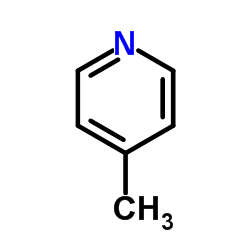

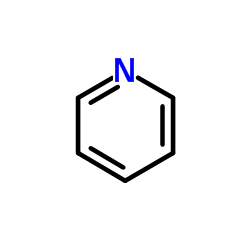
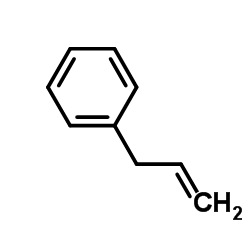
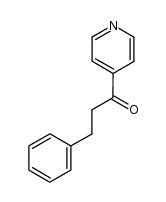

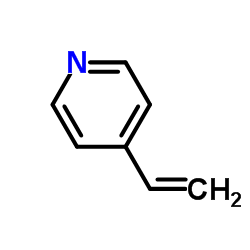
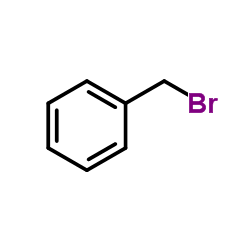
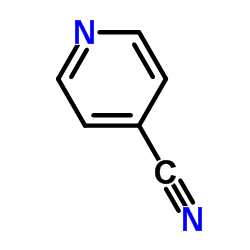

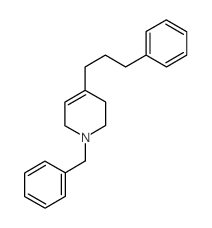 CAS#:70152-27-1
CAS#:70152-27-1